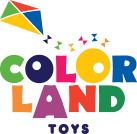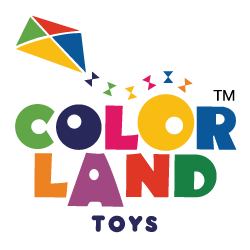When Do Babies Start Playing with Toys?

The journey of early childhood development is a marvel to behold, marked by moments of discovery, growth, and joy. Among the many milestones that parents eagerly anticipate is the emergence of playtime, where babies begin to engage with the world around them through interaction with toys. Understanding the timeline of when and how babies start playing with toys is not only fascinating but also crucial for fostering their cognitive, motor, and social development. In this comprehensive exploration, we'll delve into the stages of infant play, highlight the types of toys that best support each phase, and showcase how toys provides valuable resources and recommendations for parents navigating this exciting journey with their little ones.
The Early Months: Sensory Exploration and Grasping (0-3 Months)
In the tender early months of life, babies are immersed in a world of sensory discovery. From the moment they open their eyes, infants are drawn to visual stimuli, particularly high-contrast colors and patterns that captivate their attention. At the same time, they eagerly explore the world through touch, reaching out to grasp objects within their reach. While newborns may not yet have the dexterity to manipulate toys with intention, they exhibit a natural curiosity and responsiveness to their environment.
During this stage, simple toys that stimulate the senses are key for engaging infants. Colorful rattles with contrasting hues and textures not only catch their eye but also provide opportunities for grasping and exploring different shapes and materials. Soft plush toys with varied textures offer tactile stimulation, while toys that emit gentle sounds or music appeal to their developing auditory senses. Our range of rattles and nipples are thoughtfully designed to cater to these early developmental needs, providing safe and engaging options for newborns to explore and interact with their surroundings.
Also Read: 5 Tips for Healthy Engagement
The Exploration Phase: Developing Motor Skills (4-6 Months)
As babies enter the exploration phase, typically between 4 to 6 months of age, they begin to demonstrate greater control over their movements. They may start reaching for objects with purpose, grabbing, and grasping with increasing coordination. Whether during tummy time or supported sitting, infants eagerly explore toys placed within their reach, practicing hand-eye coordination and refining their fine motor skills.
Toys that encourage reaching, grasping, and shaking become particularly appealing to babies at this stage. Activity sets featuring dangling toys or brightly colored rings not only capture their attention but also promote hand-eye coordination and motor control. We offer a variety of activity sets designed to stimulate infants' curiosity and support their emerging motor skills. These interactive playsets engage multiple senses and provide a safe and stimulating environment for exploration and discovery.
Building Independence: Exploring Cause and Effect (7-9 Months)
Around 7 to 9 months of age, babies become increasingly mobile, mastering the art of sitting independently and possibly even crawling or pulling themselves up to stand. With newfound mobility comes a desire to explore cause-and-effect relationships, as infants delight in discovering the outcomes of their actions.
Toys that encourage exploration and problem-solving skills are ideal for this stage of development. Craft sets featuring stacking cups or nesting blocks allow babies to experiment with spatial awareness and develop an understanding of size and shape. Bath toys and potty training accessories offer opportunities for sensory exploration and encourage independence during daily routines. Our range of bath toys and potty training essentials are designed with safety and functionality in mind, providing parents with peace of mind as their little ones explore and learn through play.
Encouraging Imaginative Play: Pretend Play and Social Interaction (10-12 Months)
As babies approach their first birthday, they begin to engage in more sophisticated forms of play, including pretend play and social interaction. They may imitate adult actions, such as feeding a doll or pushing a toy stroller, as they explore the roles and routines of everyday life.
Toys that inspire imaginative play and foster social development are invaluable during this stage. Dolls and prams encourage nurturing instincts and promote empathy and emotional development. Push and pedal cars provide opportunities for active play and gross motor skill development, while also fostering a sense of independence and autonomy. We offer a range of dolls and prams, as well as push and pedal cars, designed to ignite children's imaginations and support their growing sense of self-awareness and social interaction.
Navigating the world of infant play is a delightful journey filled with discovery, growth, and endless possibilities. From the earliest days of sensory exploration to the emergence of imaginative play and social interaction, each stage offers unique opportunities for learning and development. We understand the importance of play in early childhood development and are committed to providing parents with valuable resources and recommendations to support their child's playtime journey.
Through our informative blogs and diverse range of toys, including activity sets, craft sets, bath toys and potty accessories, rattles and nipples, dolls and prams, push and pedal cars, and more, we empower parents to make informed choices that nurture their child's development and foster a lifelong love of play. By incorporating age-appropriate toys and activities into their daily routines, parents can create enriching play experiences that lay the foundation for future learning and exploration. With us as your trusted partner, parents can embark on this exciting journey with confidence, knowing that they are providing their children with the tools they need to thrive and grow through play.






 +971 50 150 4446
+971 50 150 4446